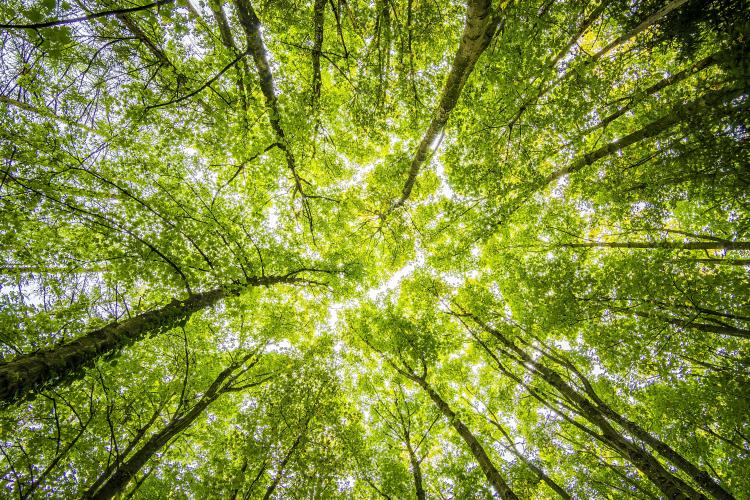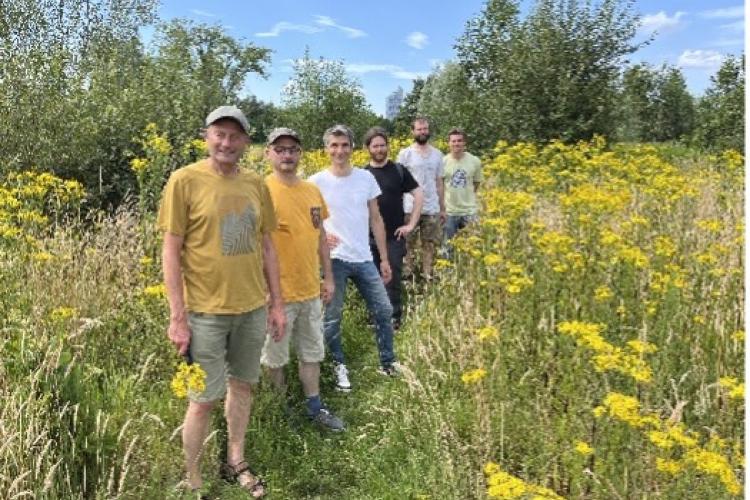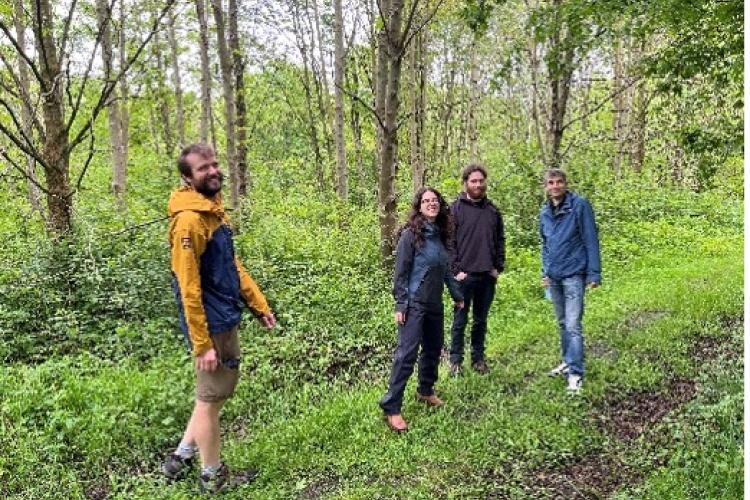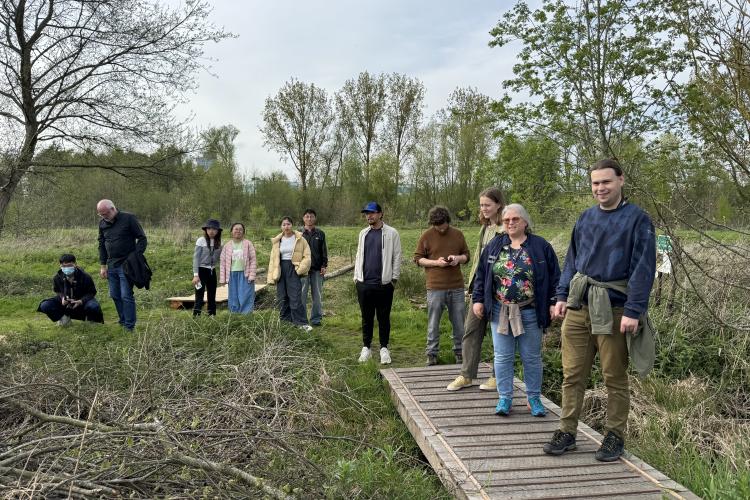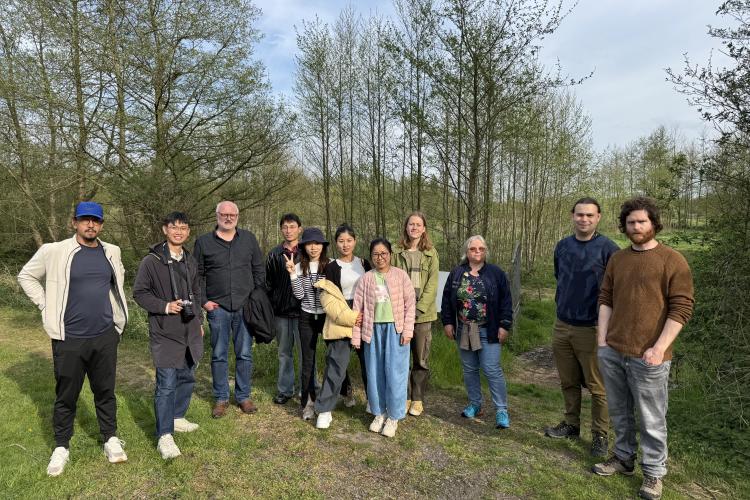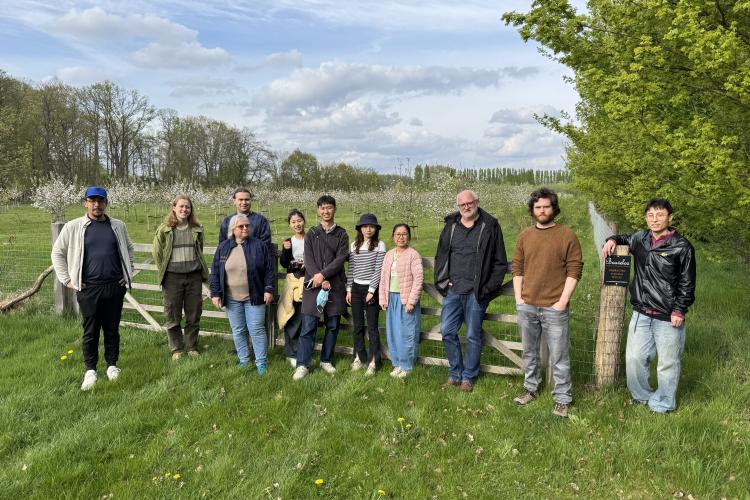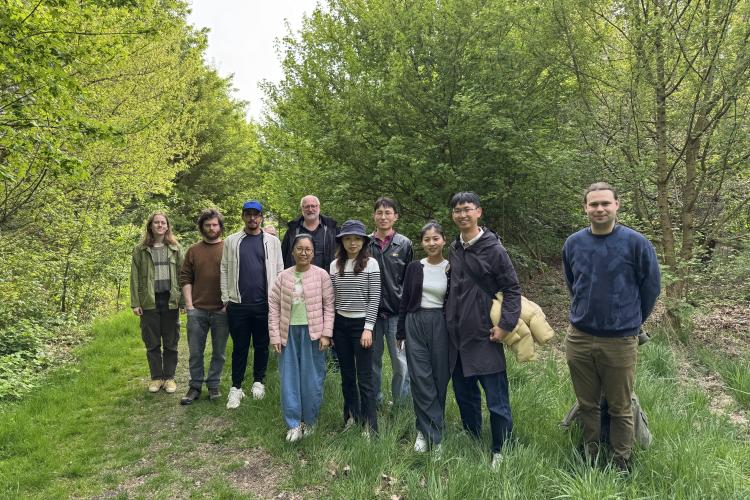The center for Plant Systems Biology (PSB) goes for more nature
Biodiversity is the variety of living organisms on Earth: the entirety of plants, animals, and fungi around us, as well as microscopic organisms such as bacteria. This biodiversity is indispensable: our food production, clean water, and climate regulation depend entirely on it. Moreover, it also positively influences our mental well-being. A resilient natural environment and rich biodiversity benefit society as a whole.
As researchers at PSB, we study biodiversity, and with our discoveries, we aim to protect it. That brings everything full circle.
Researchers need biodiversity
Many research projects rely on biodiversity. For example, evolutionary biologists study the origins and evolution of species. This research yields spectacular insights. One such finding was that most of the plants that survived the meteorite impact—which led to the extinction of the dinosaurs—had a double set of DNA. This likely increased their chances of survival in an apocalyptic world. Without biodiversity, this kind of research would be much less exciting.
Biodiversity also leads to knowledge that helps strengthen agricultural crops. Just as most people have unique DNA and physical characteristics, many wild plants are also genetically unique. By mapping both the DNA and the trait of interest (such as yield or drought resistance) in each of these unique individuals, researchers can identify which part of the DNA is responsible for that trait.
At PSB, we also study microorganisms that naturally occur in the soil to evaluate which ones promote plant growth. These can then be used as a type of bio-fertilizer in agriculture. Without a rich variety of soil life, such research would not be possible.
Discoveries to strengthen biodiversity
Plant breeding focuses on healthy food and higher crop yields with fewer inputs: in principle, this means less land is needed for agriculture and more land can be preserved for nature. Plants that are more resistant to diseases and pests require fewer pesticides, and using microorganisms as bio-fertilizers helps reduce the need for chemical fertilizers, which benefits biodiversity near agricultural fields. PSB researchers are also developing trees that are easier to process into bio-based products, such as biofuels or bioplastics. These trees can reduce the demand for fossil resources.
PSB's ecological footprint
Scientific research requires a lot of energy and materials. At PSB, we are taking significant steps to reduce the environmental impact of our daily operations. We do this by limiting the energy consumption of our equipment and focusing on waste reduction and recycling. Since meat consumption is one of the main causes of biodiversity loss, we support the transition to more plant-based diets. We also aim to reduce the number of flights in line with the EU's climate goals.
Partnership with natuurpunt
Since 2017, PSB has supported nature in the nearby Rijvissche nature reserve through a partnership with Natuurpunt. Through benefit campaigns, colleagues and supporters raised over €2,500 to help purchase land. In 2025, we covered the costs of soil analyses of a hayfield to enable tailored nature management. In this way, we aim to give biodiversity an extra boost!
More about the Rijvissche nature reserve: natuurpunt.be Discover the species hiding in the Rijvissche reserve at natuurpunt.be. Contributions can be made to the Natuurpunt account number BE56 2930 2120 7588. Please mention: ‘Gift 6689 – Hutsepot Biodiversity’. 
Het Center for Plant Systems Biology (PSB) gaat voor meer natuur
Biodiversiteit is de verscheidenheid aan levende organismen op aarde: het geheel van planten, dieren en paddenstoelen om ons ons heen maar ook microscopische organismen zoals bacteriën. Deze biodiversiteit is onmisbaar: onze voedselproductie, schoon water en klimaatregulatie zijn er volledig afhankelijk van. Bovendien heeft ze ook een positieve invloed op ons mentaal welzijn. Een weerbare natuur en biodiversiteit komt de samenleving dus alleen maar ten goede.
Als onderzoekers aan het PSB bestuderen we de biodiversiteit, en met onze ontdekkingen willen we biodiversiteit beschermen. Dat maakt de cirkel rond.
Onderzoekers hebben biodiversiteit nodig
In heel wat onderzoeksprojecten wordt gebruik gemaakt van biodiversiteit. Zo onderzoeken evolutionaire biologen het ontstaan en de evolutie van soorten. Dit onderzoek levert spectaculaire inzichten op. Zo werd vastgesteld dat het merendeel van de planten die de meteorietinslag overleefden, welke de dinosaurussen deed uitsterven, een dubbele hoeveelheid DNA hadden. Vermoedelijk verhoogde dit hun overlevingskansen in een apocalyptische wereld. Zonder biodiversiteit zou dit soort onderzoek alvast een stuk saaier worden.
Biodiversiteit leidt ook tot kennis om landbouwgewassen sterker te maken. Net zoals de meeste mensen een unieke DNA-code en unieke uiterlijke kenmerken hebben, zijn ook heel wat wilde planten uniek in hun soort. Door bij elk van die unieke individuen én het DNA in kaart te brengen én het kenmerk van interesse te meten (zoals opbrengst of weerbaarheid tegen droogte), kan er ontdekt worden welk deel van het DNA verantwoordelijk is voor dat kenmerk.
Aan het PSB worden ook micro-organismen onderzocht die van nature in de bodem voorkomen, om te evalueren welke de groei van planten bevorderen. Deze kunnen dan ingezet worden als een soort van bio-bemester in de landbouw. Zonder een rijke variatie aan bodemleven is zo’n onderzoek niet mogelijk.
Ontdekkingen om de biodiversiteit te versterken
Plantenveredeling richt zich op gezonde voeding en hogere oogstopbrengsten met minder input: er is dan in principe minder land nodig voor de landbouw en er kan dan meer land worden gebruikt voor natuurbehoud. Planten die beter bestand zijn tegen ziekten en plagen hebben minder pesticiden nodig en het gebruik van bijvoorbeeld micro-organismen als bio-bemester zorgt ervoor dat er minder meststoffen gebruikt hoeven te worden, wat de biodiversiteit in de nabijheid van de velden ten goede komt. Onderzoekers aan het PSB ontwikkelen ook bomen die gemakkelijker te verwerken zijn tot biogebaseerde producten, zoals biobrandstoffen of biokunststoffen. Deze bomen kunnen de vraag naar fossiele grondstoffen doen afnemen.
Ecologische voetafdruk PSB
Wetenschappelijk onderzoek vergt heel wat energie en materialen. Aan het PSB zetten we belangrijke stappen om de druk op de natuur van onze dagelijkse werking te verlagen. Dat doen we onder andere door het energieverbruik van toestellen te beperken en in te zetten op reductie en recyclage van afval. Aangezien vleesconsumptie een van de grootste oorzaken van biodiversiteitsverlies is, steunen we de transitie naar meer plantaardige voeding. Het aantal vliegreizen willen we afbouwen in lijn met de klimaatdoelstellingen van de EU.
Partnerschap Natuurpunt
Sinds 2017 steunt PSB de natuur in het nabijgelegen Rijvissche natuurgebied in een partnerschap met Natuurpunt. Via benefitacties haalden collega’s en sympathisanten meer dan 2500 Euro op vor aankopen van gronden. In 2025 dekten we de kosten van bodemanalyses van een hooiland om een aangepast natuurbeheer mogelijk te maken. Zo willen we de biodiversiteit een extra steuntje in de rug geven!
Meer over het Rijvissche natuurgebied op natuurpunt.be.
De soorten die zich schuilhouden in Rijvissche natuurgebied vind je op waarnemengen.be.
Bijdragen kan op het rekeningnummer van Natuurpunt BE56 2930 2120 7588. Gelieve hierbij ‘Gift 6689 – Hutsepot Biodiversiteit‘ te vermelden.
